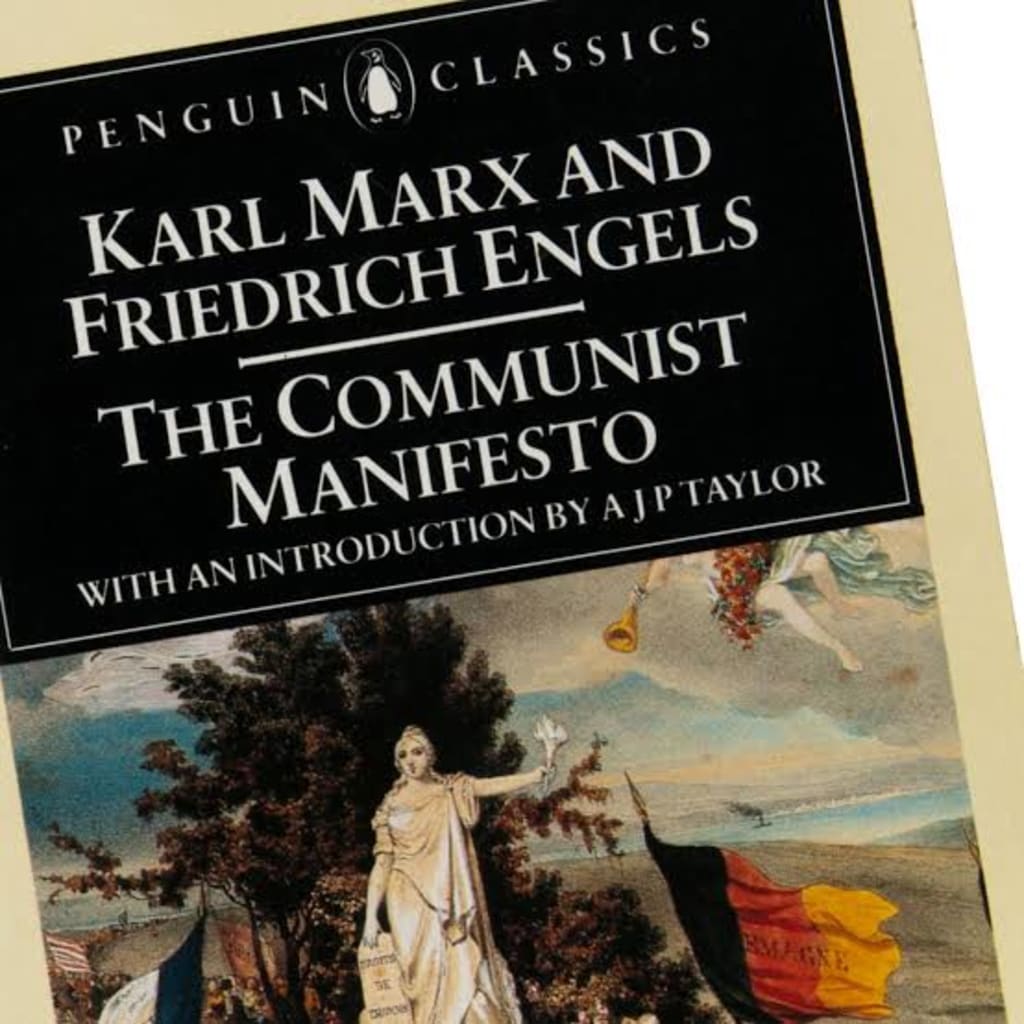Revolutionary Novels that Shocked the World!
"Revolutionary Novels: Igniting Change, Inspiring Minds, and Shaping History"

Revolutionary novels have a unique power to move readers and inspire social change. These novels challenge the status quo, question deeply ingrained beliefs, and offer new perspectives on the world. From inciting revolutions to sparking cultural movements, these books have left an indelible mark on literature and society. In this article, we will explore some of the most influential and thought-provoking revolutionary novels of all time, analyzing their historical and cultural contexts, examining their main ideas and themes, and assessing their impact on the world. Join us on this journey through the pages of history and discover the power of revolutionary novels that have shocked the world!
Introduction: The Power of Revolutionary Novels
Novels have the power to change the world. Throughout history, there have been novels that have sparked revolutions, ignited movements, and challenged the status quo. These revolutionary novels have shocked and awed readers, bringing to light the social, political, and cultural issues of their time. In this article, we will explore three literary works that have changed the world: The Communist Manifesto by Karl Marx and Friedrich Engels, Uncle Tom's Cabin by Harriet Beecher Stowe, and One Hundred Years of Solitude by Gabriel Garcia Marquez.
Defining Revolutionary Novels
Revolutionary novels are not just books that challenge the norms of their time; they are books that change the world. These works have the power to inspire social and political movements, and to question the existing order of society. Whether it is by exposing inequalities, advocating for political ideologies, or changing the way we view the world, revolutionary novels have a lasting impact on culture, society, and literature.
The Communist Manifesto: A Call for Revolution
The Historical Context of The Communist Manifesto
The Communist Manifesto, written by Karl Marx and Friedrich Engels in 1848, was a response to the social and economic conditions of the industrial revolution in Europe. The rise of capitalism had created a new class of industrial capitalists and workers, and the gap between the rich and the poor was growing. The Communist Manifesto called for a proletarian revolution to overthrow the ruling class and establish a socialist society.
The Main Ideas in The Communist Manifesto
The Communist Manifesto presents an analysis of the class struggle between the bourgeoisie (the capitalist class) and the proletariat (the working class). It argues that capitalism is inherently unjust, and that the only way to achieve equality and social justice is through a socialist revolution. The Manifesto also calls for the abolition of private property, the establishment of a democratic government, and the creation of a classless society.
The Impact of The Communist Manifesto on the World
The Communist Manifesto has had a profound impact on the world. It inspired the Bolshevik Revolution in Russia, the rise of communism in China, and the formation of socialist and communist parties around the world. The ideas in the Manifesto also influenced the labor movement, the civil rights movement, and the feminist movement. While the practical application of Marxism has been debated and contested, The Communist Manifesto remains an important document in the history of revolutionary literature.
Uncle Tom's Cabin: The Novel that Sparked a Movement
The Abolitionist Movement and the Role of Uncle Tom's Cabin
Uncle Tom's Cabin, written by Harriet Beecher Stowe in 1852, was a powerful indictment of slavery in the United States. The novel tells the story of Tom, a slave who is sold from one owner to another, and his struggles to maintain his dignity and humanity in the face of brutality and oppression. Uncle Tom's Cabin became a bestseller and was instrumental in fueling the abolitionist movement in the United States.
The Controversies Surrounding Uncle Tom's Cabin
Uncle Tom's Cabin was controversial from the moment it was published. It was criticized by Southern slave owners and sympathizers, who saw it as a threat to their way of life. Some abolitionists also criticized the novel for perpetuating racist stereotypes. However, despite the controversy, Uncle Tom's Cabin became an international sensation and helped to change the perception of slavery in the United States and around the world.
The Legacy of Uncle Tom's Cabin
Uncle Tom's Cabin has had a lasting impact on American literature and culture. It is credited with helping to bring about the Civil War and the end of slavery in the United States. The novel has also been adapted into plays, films, and other forms of media, and its characters have become iconic symbols of the struggle for freedom and equality.
One Hundred Years of Solitude: The Magic of Magical Realism
The Origins of Magical Realism
One Hundred Years of Solitude, written by Gabriel Garcia Marquez in 1967, is a masterpiece of magical realism. Magical realism is a literary style that combines realistic elements with fantastical or magical elements. The origins of magical realism can be traced to Latin America, where it emerged as a way to express the cultural and political realities of the region.
The Literary Style of One Hundred Years of Solitude
One Hundred Years of Solitude tells the story of the Buendia family over the course of a century. The novel is filled with magical elements, such as flying carpets, levitation, and telepathy. However, these fantastical elements are presented in a matter-of-fact way, as if they are an everyday part of life. The novel also explores themes of memory, solitude, and the cyclical nature of time.
The Significance of One Hundred Years of Solitude in Literature
One Hundred Years of Solitude is widely regarded as one of the greatest works of Latin American literature. It has had a profound impact on the literary world, inspiring a generation of Latin American writers to explore the possibilities of magical realism. The novel has also been translated into dozens of languages and has become a worldwide literary phenomenon, cementing its place as a revolutionary work of literature.
Things Fall Apart: A Critique of Colonialism and its Consequences
Written by Chinua Achebe, Things Fall Apart is a masterpiece of African literature that has shaken the world. The novel is set in Nigeria, and it deals with the arrival of European missionaries on the Ibo community, which eventually leads to the collapse of their traditional way of life and a loss of their identity.
The Historical and Cultural Context of Things Fall Apart
The novel is set in the 19th century, at a time when Nigeria was under British colonial rule. It was written in 1958, which was a period of significant social and political change, as African countries were starting to gain independence from their European colonizers. Achebe's novel, therefore, reflects the cultural, social, and political context of Nigeria during this period.
The Themes of Things Fall Apart
One of the central themes of the novel is the impact of colonialism on African societies. Achebe criticizes the Europeans for imposing their culture and religion on the Ibo people and destroying their traditional way of life. Another theme explored in the novel is the tension between tradition and modernity, which is embodied through the character of Okonkwo, who struggles with the changing world and his inability to adapt to it.
The Reception of Things Fall Apart and its Impact on Literature
Things Fall Apart has been widely acclaimed as a groundbreaking work of literature that challenged the dominant narratives about Africa and colonialism. It has also inspired a new generation of African writers to tell their stories and critique the legacy of colonialism. It has been translated into over 50 languages and has sold millions of copies worldwide.
The Handmaid's Tale: A Dystopian Warning for the Future
Written by Margaret Atwood, The Handmaid's Tale is a dystopian novel that depicts a totalitarian society in which women are reduced to their reproductive function and serve as a means of survival for the ruling class.
The Genre of Dystopian Literature
The Handmaid's Tale belongs to the genre of dystopian literature, which explores the worst-case scenario for humanity. Dystopian novels often offer a critique of society and warn of the dangers of unchecked power and oppression.
The Themes of The Handmaid's Tale
The Handmaid's Tale explores a range of themes, including gender roles, power dynamics, and the dangers of religious fundamentalism. Atwood's novel has been praised for its feminist message and its stark warning about the dangers of misogyny and women's oppression.
The Adaptations of The Handmaid's Tale and its Relevance Today
The Handmaid's Tale has been adapted into a successful TV series that has gained global attention for its powerful portrayal of women's oppression and its relevance in the current political climate. The book and its adaptations have sparked important debates about women's rights, reproductive freedom, and political power.
The Color Purple: A Story of Survival and Healing
Written by Alice Walker, The Color Purple is a powerful story of survival and healing that explores issues of race, gender, and sexuality.
The Autobiographical Elements of The Color Purple
The Color Purple is loosely based on the life of Alice Walker's grandmother and reflects Walker's personal experiences growing up in the rural South as an African American woman.
The Themes of The Color Purple
The novel explores a range of themes, including the abuse of power, the redemptive power of love, and the importance of self-discovery. The book has been widely recognized for its portrayal of the complex lives of African American women and the issues they face in a society that perpetuates racism, sexism, and violence.
The Legacy of The Color Purple in Literature and Film
The Color Purple has been adapted into a successful film and Broadway musical, and it has inspired a new generation of writers to explore issues of race, gender, sexuality, and identity. The novel has also been praised for its uplifting message of hope and redemption in the face of adversity.
Conclusion: The Legacy of Revolutionary Novels
Revolutionary novels have played a vital role in shaping our understanding of the world and in challenging the dominant narratives that perpetuate inequality and oppression. These books have inspired social movements, sparked important debates, and opened up new possibilities for change. The enduring legacy of revolutionary novels reminds us of the power of literature to change hearts and minds and to create a more just and equitable world.
The Enduring Impact of Revolutionary Novels on Society
Revolutionary novels continue to impact society today by challenging our assumptions, broadening our perspectives, and inspiring us to take action. These books remind us of the importance of critically examining the world around us and of speaking out against injustice. The legacy of revolutionary novels serves as a testament to the transformative power of literature in shaping the world we live in.Revolutionary novels have the power to spark change and inspire generations. These books have challenged societal norms and pushed the boundaries of what is possible in literature. From The Communist Manifesto to The Color Purple, the revolutionary novels discussed in this article have left lasting impressions on readers, affecting the way we think about the world and inspiring us to create a better future. As we continue to navigate the complexities of our world, we can look to these books as a reminder of the transformative power of literature and the importance of storytelling in shaping our understanding of history and society.
FAQs
What is a revolutionary novel?
A revolutionary novel is a literary work that challenges the status quo, presents new perspectives, and advocates for social change. These novels can be categorized as political, cultural, or philosophical and often have a profound impact on society.
What makes a revolutionary novel influential?
Revolutionary novels are influential when they spark cultural movements, inspire social change, and challenge deeply ingrained beliefs. These novels are often controversial, thought-provoking, and have stood the test of time, remaining relevant and impactful for generations.
Why are revolutionary novels important?
Revolutionary novels are important because they challenge the dominant narratives of society and offer alternative perspectives. These books help us to understand historical and cultural contexts, question deeply ingrained beliefs, and inspire us to create a better future.
Which revolutionary novel should I read first?
There is no one-size-fits-all answer to this question, as the choice of which revolutionary novel to read first will depend on your interests and reading preferences. Some popular options include The Communist Manifesto by Karl Marx and Friedrich Engels, Uncle Tom's Cabin by Harriet Beecher Stowe, and The Handmaid's Tale by Margaret Atwood.





Comments
There are no comments for this story
Be the first to respond and start the conversation.